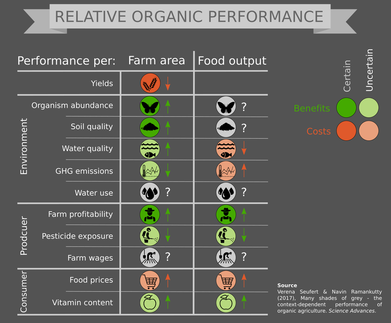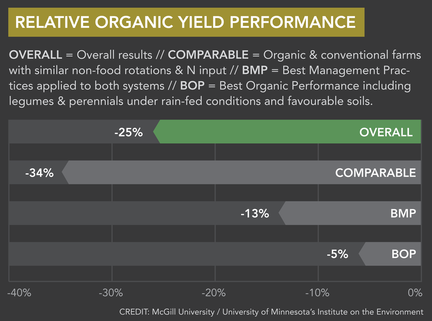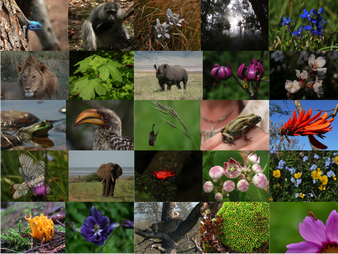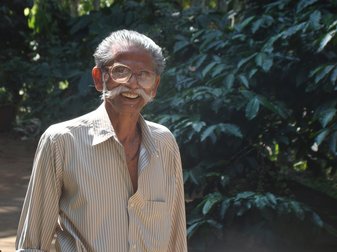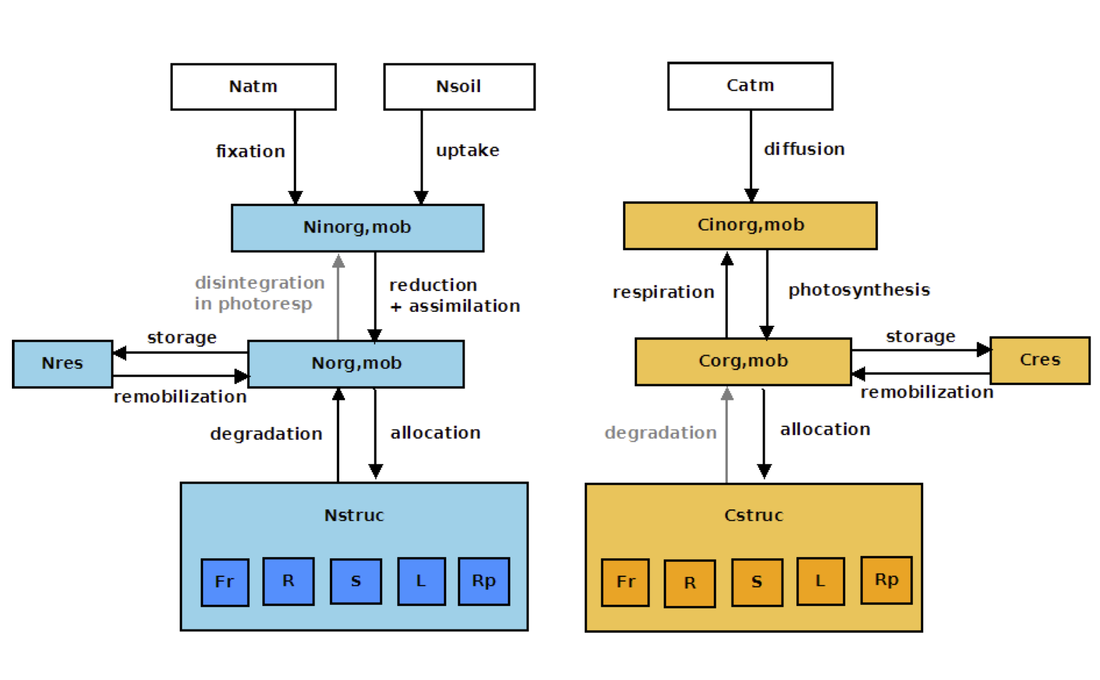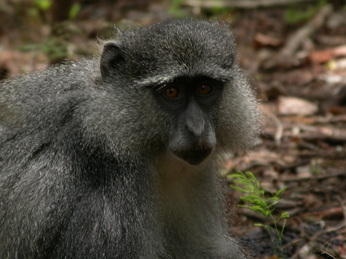Generally speaking, my research interests can be broadly characterized as aiming to understand how we can achieve more sustainable global food security. Sustainable food security requires not only that all people have access to sufficient nutritious food at all times but also that this food be produced with minimal environmental impact and while providing sufficient and just livelihoods to food workers. In other words, it recognizes that agriculture is a major driver of global environmental change, as well as a contributor to social inequality and precarity and that our future plans to feed the world need to be achieved through a sustainable and just pathway. I strongly believe that feeding another 3 billion people by 2100, while at the same time reducing the environmental footprint of agriculture and addressing injustices in the food system, will be one of the major challenges of the coming century.
The focus of my past and current research has been to understand how different types of farming systems in different regions of the world offer both challenges and opportunities to manage trade-offs between social (like food production and farmer livelihoods) and environmental outcomes (like biodiversity, greenhouse gas emissions and nitrogen losses) of agriculture. In my work, I do not only seek to develop quantitative and qualitative rigour but I also adopt a highly interdisciplinary approach to sustainability research, which I believe is critical for identifying pathways towards a more sustainable future. To implement this interdisciplinary research vision, I typically use a diverse array of different analytical approaches – ranging from the development of global land use datasets and the use of geographic information systems over global meta-analyses of the scientific literature, to regional mixed-method case studies of farmer livelihoods.
In the following you can find an overview of some of my past and current research projects.
The focus of my past and current research has been to understand how different types of farming systems in different regions of the world offer both challenges and opportunities to manage trade-offs between social (like food production and farmer livelihoods) and environmental outcomes (like biodiversity, greenhouse gas emissions and nitrogen losses) of agriculture. In my work, I do not only seek to develop quantitative and qualitative rigour but I also adopt a highly interdisciplinary approach to sustainability research, which I believe is critical for identifying pathways towards a more sustainable future. To implement this interdisciplinary research vision, I typically use a diverse array of different analytical approaches – ranging from the development of global land use datasets and the use of geographic information systems over global meta-analyses of the scientific literature, to regional mixed-method case studies of farmer livelihoods.
In the following you can find an overview of some of my past and current research projects.
Brightspots
I am convinced that we do not need to reinvent to wheel to find solutions for more sustainable farming systems - many positive examples of systems that manage to deliver yields, provide livelihoods to farmers and farm workers while at the same time protecting natural resources do already exist. We just need to look for them and learn from them! This is what I am planning to do in my new project funded by the Robert Bosch foundation through my Robert Bosch Juniorprofessorship. More info about the project (including a fun new website) will be coming soon. In the meantime, check out this great video created by the Robert Bosch foundation:
Organic agriculture
A lot of my research over the last years has been about organic agriculture, examining the sustainability of organic agriculture by looking at agronomic (yields), ecological (biodiversity), social (farmer livelihood) and policy (organic regulations) dimensions. While I do believe that organic agriculture is not the silver-bullet solution that many hope for, I am convinced it has an important role to play in the transformation of our agri-food systems towards more sustainability.
Check out my full PhD thesis here.
Check out my full PhD thesis here.
|
The relative performance of organic agriculture
|
Organic agriculture & yields
|
|
Often, when we have an opinion in favour or against organic agriculture, we have one or two pet issues in mind that lead us to support or criticise organic agriculture. But how does organic agriculture actually perform across a whole suite of sustainability issues? In a study published in 2017 in the journal Science Advances (see here) we examined what we actually know about the relative performance of organic.
|
Many argue that the lower yields of organic agriculture are its biggest shortcoming. But how much do we actually know about organic yields? How exactly do they differ from conventional yields and what drives this difference? In 2012 we carried out one of the first meta-analyses comparing organic and conventional yields (see the paper published in the journal Nature here). In 2019 I took stock again of the organic yield debate in a book chapter (see here).
|
Organic agriculture & regulations
What distinguishes organic agriculture from concepts like agroecology, low-input agriculture or conservation agriculture is that organic agriculture is the only management system that is regulated in laws in most countries. In order to understand what organic agriculture means today we carried out a content analysis of different organic regulations from across the world. From this analysis we concluded that regulations define organic mostly in terms of 'natural' vs. 'synthetic' inputs. Environmental best practices are, instead, not well represented in organic regulations. This project was carried out in collaboration with Navin Ramankutty (UBC) and Tabea Mayerhofer (TU München). This study was published in Food Policy in 2017 (see here).
Organic agriculture & biodiversity
|
We know that organic management typically increases biodiversity within fields and within farms. But how does this effect of organic management depend on landscape context? In this project - in collaboration with Navin Ramankutty (UBC), Andrea J. Reid (Carleton University ), Sylvia L. Wood (Bioversity International, Columbia University), Daniel Haberman (McGill University), Jeanine Rhemtulla (UBC), Andy Gonzalez (McGill University), Tim Benton (University of Leeds) and Doreen Gabriel (Julius-Kühn Institute) - we examine how landscape composition and landscape configuration influence the biodiversity benefit of organic management through a meta-analysis of the scientific literature. More results forthcoming.
|
Organic agriculture & farmer livelihoods
|
For organic agriculture to be a viable alternative to conventional farming it needs to provide livelihoods to farmers. So what are the benefits and problems of organic management for farmers? I wrote a policy brief based on a literature review on the livelihood outcomes of organic management for the Institute for the Study of International Development (ISID, McGill, see here). I also conducted a case study on organic farmer livelihoods in the South Indian state of Kerala in 2013 in collaboration with my supervisor Navin Ramankutty (UBC), as well as Stephanie Austin, Sarah Turner and Madhav Badami (McGill University). More results forthcoming.
|
Agromes
During my postdoctoral research at the University of British Columbia I have been working on developing a global classification of farming systems across the world using new datasets on global agricultural management that we developed within the EarthStat project. More results forthcoming.
Previous work
|
Nitrogen and crop photosynthesis
During my diploma thesis at the University of Würzburg and under the supervision of Christoph Müller (Potsdam Institute of Climate Impact Research, PIK), Wolfgang Cramer (PIK) and Werner Kaiser (Department of Botany I, University of Würzburg), I examined the influence of nitrogen limitation on crop photosynthesis in order to develop a modelling framework that allows including nitrogen controls on crop production in global models of the terrestrial land surface. For more details see my full diploma thesis here and a study published in PLOS One here. |
|
Seed dispersal and Sykes monkeys
In this project I examined the secondary seed dispersal of seeds spat and dropped by Sykes monkeys in the South African Soutpansberg range using camera trapping. This project was in collaboration with Birthe Heikamp and Frauke Fischer (Department of Animal Ecology and Tropical Biology, University of Würzburg). This study was published in 2009 in the African Journal of Ecology (see here). |
